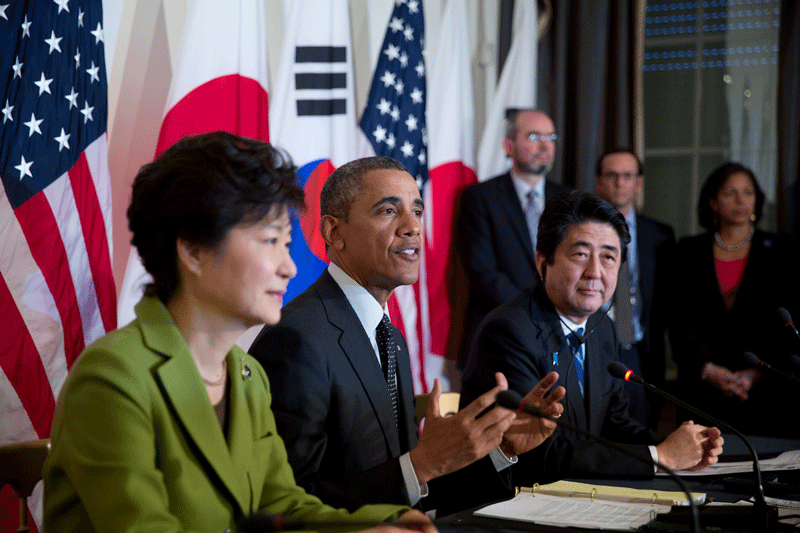In a few days the leaders of Asia’s top three powers – China, Japan and South Korea – are set to meet in Seoul. Despite the high profile nature, and extreme rarity, of such a meeting, coordinators have remained all but mute about its details.
The AP reports that there’s even less fanfare around the first bilateral meeting between Japanese and Korean presidents in nearly four years during that summit saying the leaders will confer briefly on Monday morning and break before lunch. That meeting will take place one day after their weekend meeting with Chinese premier Li Keqiang.
This lack of enthusiasm can, of course, be attributed recent territorial disputes between the counties and (perhaps even more contentiously) heated discrepancies over the severity of Japan’s WWII aggression in the region. Despite the participants’ apprehension, the AP notes that the meeting holds symbolic significance, because it at least marks some contact between the frequently disparate countries.
Those tensions distract from the potential gains that each nation could make at the meeting, including mutually beneficial countermeasures against North Korea’s escalating nuclear ambitions. But all the lingering bad blood between these top three Asia power may render the all too rare meeting unsubstantial. However, the AP quoted one expert who pointed out that even an agreement to arrange future summits would be a considerable improvement over the current cold shoulder status quo.
Image: South Korean President Park, U.S. President Barack Obama, and Prime Minister Abe at a trilateral meeting at the Hague (www.whitehouse.gov)









